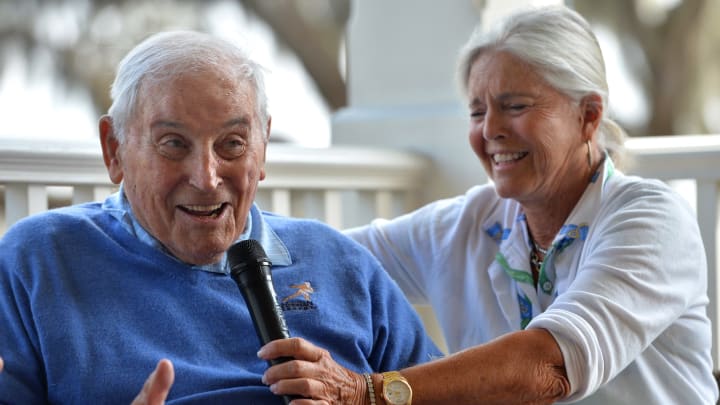Johnny Lujack, Notre Dame Heisman Winner and Bears Star, Dies at 98

College Football Hall of Fame quarterback and defensive back Johnny Lujack has died, Notre Dame announced Tuesday afternoon. The oldest living Heisman Trophy winner was 98.
“We mourn the loss of [Notre Dame football] alumnus Johnny Lujack and remember the impact the Heisman winner and College Football Hall of Famer left,” the Fighting Irish said in a statement on Twitter. “We lift our thoughts and prayers for Lujack’s family, friends and loved ones.”
Lujack won the Heisman Trophy in 1947 and finished third in the voting for the award in 1946. He was drafted with the fourth pick of the ’46 NFL draft before the conclusion of his college career by the Bears, going on to play four years for Chicago—two of which ended in Pro Bowl berths.
Propelled by Lujack’s stellar two-way play, Notre Dame went 17-0-1 from 1946–47, often cited among the greatest two-year stretches in college football history. The Connellsville, Pa. native appeared on the cover of Life magazine in September of his final collegiate season.
Lujack's college career began in 1942 but was interrupted by World War II; he spent time as a naval officer and later acted in a radio program while with the Bears. Upon the conclusion of his professional career, Lujack worked as a Fighting Irish assistant, a car dealer, and a football color analyst for CBS and ABC.
Per Notre Dame, Lujack is survived by his children Mary and Jeff. His wife of 74 years, Patrician Ann, died in 2022. The couple’s daughter Carol died in ’02.
